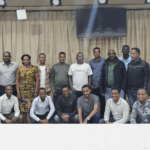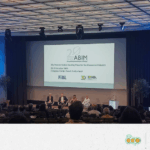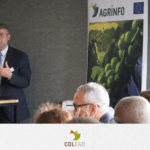“Access to finance for agripreneurs”: a COLEAD department enabling partner-beneficiaries to reach the maturity required to fund their projects
- 07/12/2023
- Posted by: Sandra Borma
- Category: News

Access to finance for micro, small, and medium-sized enterprises (MSMEs) is a significant obstacle to the development of inclusive and sustainable agricultural and food sectors, especially in vulnerable and high-potential countries such as Sub-Saharan African countries.
For over 20 years, COLEAD has been actively involved in this area, despite it not being originally part of the priority intervention themes of the programmes, which were more focused on strengthening the technical capacities of operators in agricultural practices and market access. These requests have led to two outcomes:
COLEAD, through the implementation of programmes for over 20 years, has been regularly involved in this area, even though it was not originally part of the priority intervention themes of the programmes, which were more focused on strengthening the technical capacities of operators in agricultural practices and market access. These requests have led to two results:
- On demand, the theme of access to finance has been integrated from the design phase of programmes such as FFM, NExT Kenya, and FFM Plus;
- Simultaneously, we have been required to identify and mobilize financial institutions that are willing to study business plans of MSMEs active in the agri-food sector, particularly in horticultural value chains.
Empirically, based on experience and lessons learned from the implementation of technical support through managed programmes, there is a certain mismatch between the technical and financial attractiveness of the supported agripreneurs’ projects and the financial instruments available to them through local banks, investment funds—including those with a social and impact focus—and other operators involved in direct project financing in the agri-food sector. This often results in prohibitive and/or unsuitable financing conditions for the scale of projects undertaken by agripreneurs.
In response to increasing investment needs among existing and potential partner-beneficiaries of programmes managed and implemented by COLEAD, we decided two years ago to structure our expertise from the Technical Assistance department into a specific “Access to Finance” department.
What COLEAD offers today is primarily technical assistance and training to enable project owners to strengthen their business management capacities, including the development of business plans on both technical and financial aspects. At the same time, COLEAD strives to build a network of potential financing sources, targeting efforts towards actors particularly committed to sustainable impact with MSMEs in the agri-food sector in low- and middle-income countries.
Under the FFM Plus programme, COLEAD’s approach to access to financing revolves around four key steps:
- Confirming the relevance of the business model and the envisioned project.
- Supporting the creation/review of appropriate documentation for the investment project.
- Assisting the project owner in evaluating (and comparing) the attractiveness of the envisaged investment.
- Facilitating the connection between agripreneur candidates for financing and financing options.
We thus accompany partner-beneficiaries of our programmes towards achieving a level of maturity conducive to attracting funding for their growth projects. This is done in practice:
- Through capacity building (training, guidance, access to technical resources).
- Through a collective or individualised learning journey, adapted to their maturity and needs.
- With the aim of empowering them to develop their financing request and communicate successfully with relevant funding sources.
The “Access to Finance” department of COLEAD continuously enriches its approach through its relationships with specialised sector actors and feedback from the network of partner-beneficiaries facing these challenges in the field.
This activity is supported by the Fit For Market Plus (FFM+) programme, implemented by COLEAD within the Framework of Development Cooperation between the Organisation of African, Caribbean and Pacific States (OACPS) and the European Union. This publication receives financial support from the European Union and the OACPS. The content of this publication is the sole responsibility of COLEAD and can in no way be taken to reflect the views of the European Union or the OACPS.





